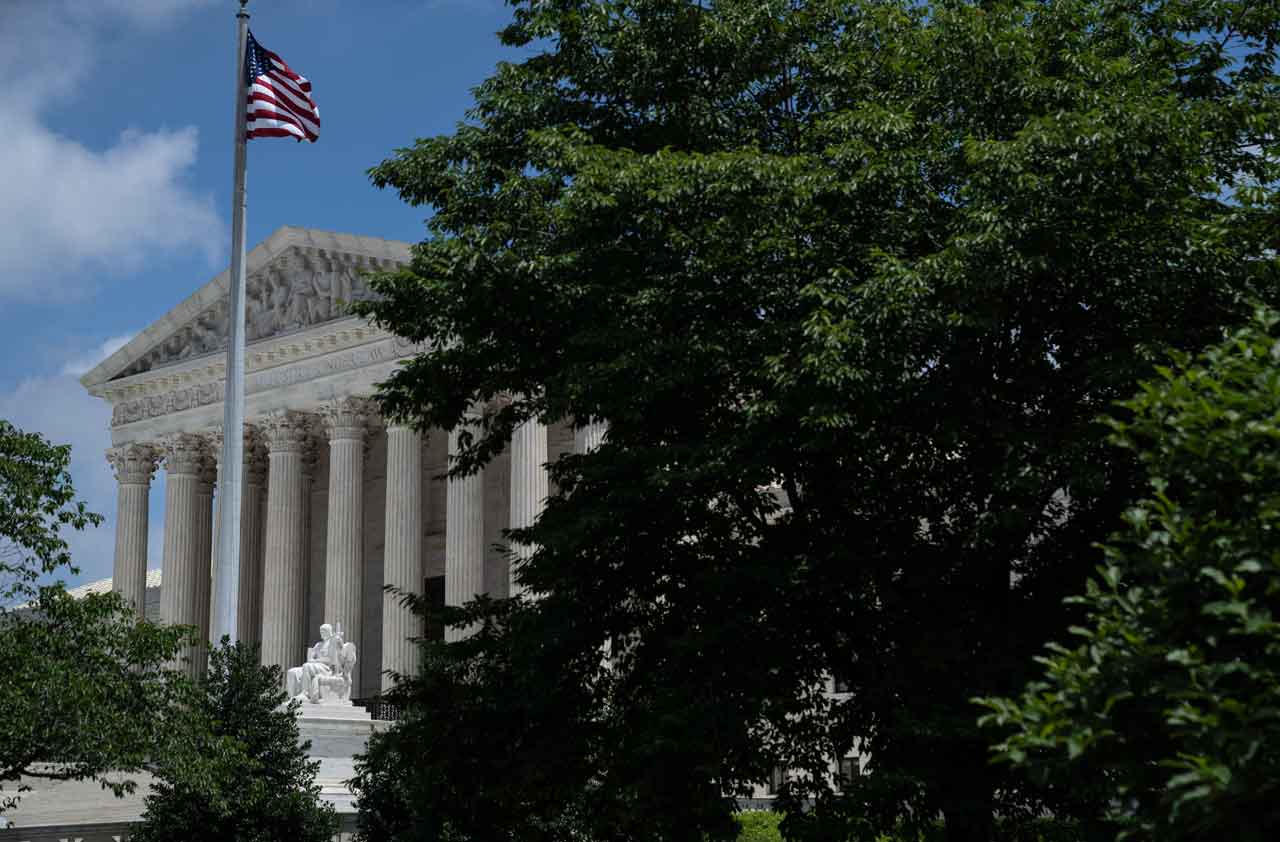GOP Puts Social Security in Play in Fiscal Cliff Talks
The choice is whether to reduce the retirement benefit by a little now or a lot more later.

Profit and prosper with the best of Kiplinger's advice on investing, taxes, retirement, personal finance and much more. Delivered daily. Enter your email in the box and click Sign Me Up.
You are now subscribed
Your newsletter sign-up was successful
Want to add more newsletters?

Delivered daily
Kiplinger Today
Profit and prosper with the best of Kiplinger's advice on investing, taxes, retirement, personal finance and much more delivered daily. Smart money moves start here.

Sent five days a week
Kiplinger A Step Ahead
Get practical help to make better financial decisions in your everyday life, from spending to savings on top deals.

Delivered daily
Kiplinger Closing Bell
Get today's biggest financial and investing headlines delivered to your inbox every day the U.S. stock market is open.

Sent twice a week
Kiplinger Adviser Intel
Financial pros across the country share best practices and fresh tactics to preserve and grow your wealth.

Delivered weekly
Kiplinger Tax Tips
Trim your federal and state tax bills with practical tax-planning and tax-cutting strategies.

Sent twice a week
Kiplinger Retirement Tips
Your twice-a-week guide to planning and enjoying a financially secure and richly rewarding retirement

Sent bimonthly.
Kiplinger Adviser Angle
Insights for advisers, wealth managers and other financial professionals.

Sent twice a week
Kiplinger Investing Weekly
Your twice-a-week roundup of promising stocks, funds, companies and industries you should consider, ones you should avoid, and why.

Sent weekly for six weeks
Kiplinger Invest for Retirement
Your step-by-step six-part series on how to invest for retirement, from devising a successful strategy to exactly which investments to choose.
Because of House Republicans, Social Security is now part of the negotiations over the fiscal cliff and the broad approach to spending cuts over the next few decades.
SEE ALSO: Kiplinger's Social Security Solutions
The Republican idea is to change the inflation yardstick that determines the annual cost-of-living increase for Social Security payouts. Such a move would probably peg inflation this year around 1.7% instead of 2%. To budget cutters, it's a big deal, saving about $110 billion over 10 years. For retirees, though, it means getting a $1,900 check monthly instead of $2,000.
From just $107.88 $24.99 for Kiplinger Personal Finance
Become a smarter, better informed investor. Subscribe from just $107.88 $24.99, plus get up to 4 Special Issues

Sign up for Kiplinger’s Free Newsletters
Profit and prosper with the best of expert advice on investing, taxes, retirement, personal finance and more - straight to your e-mail.
Profit and prosper with the best of expert advice - straight to your e-mail.
This idea isn't new. Michael Boskin, chairman of the Council of Economic Advisers under President George H.W. Bush, led a commission in 1996 that concluded that the current measurement overstates inflation. But labor unions and AARP worked hard to block use of a new yardstick. Even so, change seemed likely until President Bill Clinton's encounters with intern Monica Lewinsky. Bipartisan cooperation ended when the Republican-controlled House brought impeachment proceedings against Clinton.
Since that time in the late 1990s, change in Social Security moved offstage, and there have been no serious efforts to attack deficits and the national debt until now.
Those who oppose changing the inflation measure or other ideas, such as raising the retirement age two years, assert that Social Security is sound: After all, it's supported by a trust fund. But that's not the case.
The retirement program operates on a year-to-year basis. Talk of a "trust fund" is symbolic, referring to paper IOUs written by the Treasury every year. It collects all taxes, including payroll revenue, and writes checks for all government spending.
The mountain of IOUs is huge: about $2.7 trillion over the past 30 years. Congress and the White House know all this. For years until his retirement in 2005, Sen. Ernest Hollings (D-SC) attacked the "raid" on Social Security during annual hearings on the budget.
After a 1984 commission raised the tax rate on wages and pushed the age from 65 to 67 for full benefits, there was a cash surplus each year until 2010. The Treasury now borrows to repay the IOUs -- $49 billion in 2010 alone. With fewer workers and more retirees, the amount will continue to increase until the IOUs in the Treasury are depleted, sometime around 2033. Then? Nothing really changes. Treasury would continue borrowing, adding to the deficit, which in turn would increase the national debt.
Because the tax revenue and benefit checks have always been mixed together, many lawmakers want to reduce cost-of-living increases, push the retirement age beyond 67 or raise taxes on upper-incomers to lessen the impact on the annual budget deficit. That's why Social Security is on the table. Many seniors feel cheated, contending that they're merely getting their tax payments back. And there are enough senior citizens to block changes for a few years.
Social Security's finances aren't as complicated as changing Medicare, or formulating a new approach to defense and national security, or deciding how much to shrink the third of the budget that goes to all the other stuff government spends tax dollars on. But Social Security payments represent about a quarter of all federal spending. That's why the issue is back in the spotlight.
Change is coming because there's no alternative. If nothing is done, Social Security won't dry up. But today's teenagers will collect about 75% of the current annual benefit. That's the choice. Make a few changes now that are phased in over a couple of decades, or do nothing and eventually make big cuts.
Haven't yet filed for Social Security? Create a personalized strategy to maximize your lifetime income from Social Security. Order Kiplinger's Social Security Solutions today.
Profit and prosper with the best of Kiplinger's advice on investing, taxes, retirement, personal finance and much more. Delivered daily. Enter your email in the box and click Sign Me Up.

-
 How to Watch the 2026 Winter Olympics Without Overpaying
How to Watch the 2026 Winter Olympics Without OverpayingHere’s how to stream the 2026 Winter Olympics live, including low-cost viewing options, Peacock access and ways to catch your favorite athletes and events from anywhere.
-
 Here’s How to Stream the Super Bowl for Less
Here’s How to Stream the Super Bowl for LessWe'll show you the least expensive ways to stream football's biggest event.
-
 The Cost of Leaving Your Money in a Low-Rate Account
The Cost of Leaving Your Money in a Low-Rate AccountWhy parking your cash in low-yield accounts could be costing you, and smarter alternatives that preserve liquidity while boosting returns.
-
 U.S. Manufacturing Is Already Ailing from Coronavirus
U.S. Manufacturing Is Already Ailing from CoronavirusEconomic Forecasts Supplies are hard to come by, and in the longer-term demand may be at risk.
-
 Will You Have to Pay More Sales Taxes on Your Online Purchases?
Will You Have to Pay More Sales Taxes on Your Online Purchases?business One thing’s for sure: Consumers who live in one of the five states without a sales tax won’t be affected by the Supreme Court’s ruling.
-
 What to Expect From the New Fed Chief
What to Expect From the New Fed ChiefEconomic Forecasts By and large, Jerome Powell will move along the path set by his predecessor.
-
 How a Border Tax Would Affect You
How a Border Tax Would Affect YouBusiness Costs & Regulation A plan to limit imports could raise prices but also create more jobs.
-
 A Housing Shortage Looms: Builders Can’t Keep Up
A Housing Shortage Looms: Builders Can’t Keep Upbusiness Starter homes especially are becoming scarce.
-
 Help Wanted in America: Skilled Workers
Help Wanted in America: Skilled WorkersTechnology In an ever-more-competitive job market, technology increases the need for skilled workers.
-
 The Unintended Consequences of a Boost in Overtime Pay
The Unintended Consequences of a Boost in Overtime PayBusiness Costs & Regulation New rules mean millions more employees will be overtime-eligible. But will employers find workarounds?
-
 U.S. Economy to Perk Up in Second Half
U.S. Economy to Perk Up in Second HalfEconomic Forecasts Consumers are recovering from a swoon induced by a wobbly stock market. But energy, other sectors will continue to struggle.